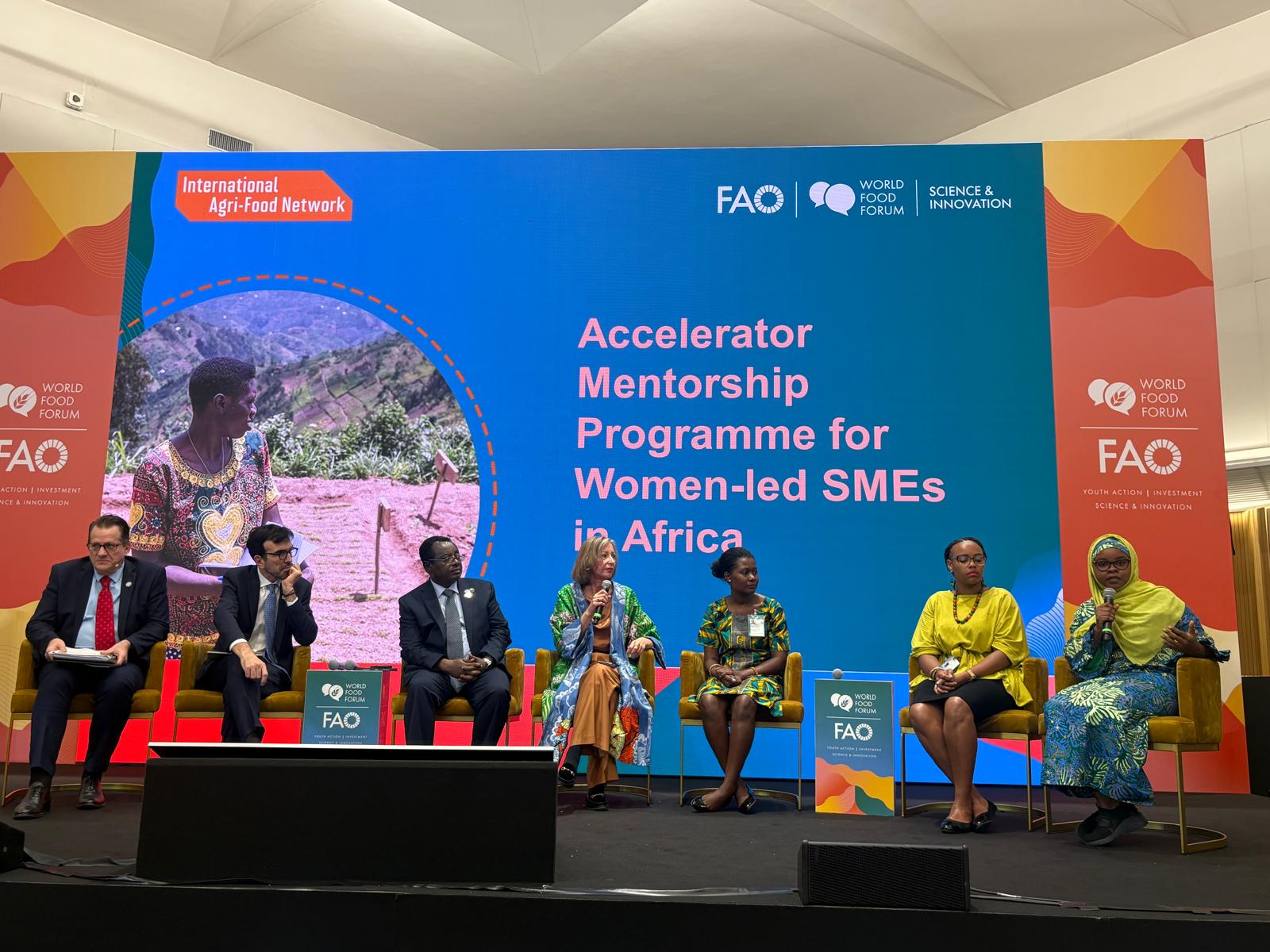ECOSOC at 80: Renewing Multilateralism in an Age of Global Uncertainty
On 23 January, the United Nations Economic and Social Council (ECOSOC) convened a commemorative session…

17 October 2024, Rome – The Food and Agriculture Organization of the United Nations (FAO) and the International Agri-Food Network (IAFN) have launched the third round of their joint initiative, the Accelerator Mentorship Programme for Women-led Small-to-Medium Enterprises in Africa. This innovative programme will foster 50 women entrepreneurs across Africa’s agrifood sector over the next nine months, providing them with the mentorship, skills, and resources they need to grow their businesses and contribute to more efficient, inclusive, resilient and sustainable agrifood systems in Africa.
Building on the success of the previosus two rounds, the programme aims to address the social, economic and environmental challenges faced by women entrepreneurs in Africa’s agrifood systems. By pairing the mentees with a global panel of experienced women entrepreneurs, the programme provides one-on-one mentorship, knowledge sharing, and capacity building designed to help the mentees scale their businesses and adapt to the evolving marketplace under the African Continental Free Trade Area agreement.
At today’s launch, FAO Deputy Director-General Maurizio Martina said women are the backbone of agrifood systems.
“At FAO we know investing in rural women, enhancing their capacities, decision-making powers and access to finance and essential services is a necessity to accelerate progress towards rural development and food security,” he said.
The third round of the Accelerator Mentorship Programme comes at a time when empowering women entrepreneurs is more crucial than ever. According to FAO, women account for around 54 percent of the workforce employed in the off-farm segments of Africa’s agrifood systems, yet their potential remains underutilized due to financial and structural barriers. Through this programme, FAO and IAFN aim to unlock the potential of women-led agribusinesses, driving innovation and contributing to resilient food systems across the continent.
In his remarks, FAO Assistant Director-General Abebe Haile-Gabriel highlighted the transformative role that women play in agrifood systems transformation and rural development.
“Investing in women’s empowerment means investing in a more efficient, inclusive, resilient and sustainable future. It means greater food security, enhanced nutrition, innovative solutions and far-reaching benefits to entire communities. When women are equipped and enabled, they achieve remarkable things,” he said.
Robynne Anderson, Secretary General of IAFN, underlined the importance of supporting women entrepreneurs in Africa.
“Women’s entrepreneurship is essential for fostering economic diversity and sustainable growth. Women entrepreneurs play a key role in poverty reduction because when women earn they spend a high proportion of their income on children’s health, education, and nutrition, breaking the cycle of poverty,” she said.
Her organisation estimates that the first cohort of 50 women positively benefitted 500,000 people – employees, farmers, value chain participants and customers. “A few great leaders can make a great difference,” she said.
Together we achieve more
The Accelerator Mentorship Programme is designed to provide participants with a blend of tailored mentorship and practical training. On top of the one-on-one mentoring, participants take part in interactive workshops focusing on topics such as how to access financing, develop sustainable business models, and meet international market standards.
Elizabeth Kabakoyo, founder of Glowish Agro Solutions that produces organic fertilizers for small-holder farmers, shared her insights as a participant in a previous round of the program.
“My mentor supported me and helped me manage the financial side of my business, as well as effectively manage employees and enhance the outreach of customers. Now, through my activity, I produce agroecological bio fertilizers which are used by farmers to increase agricultural productivity, adapting to climate change, while at the same time protecting biodiversity. In the future, I am planning to expand my activity and set up demonstration gardens to educate farmers of my region on the use of eco-organic fertilizers,” she said.
The mentees selected for the third round represent a diverse range of sectors within the agrifood system, including agro-processing, value addition, and food supply trading.
The programme is part of FAO’s broader commitment to gender equality and the empowerment of women in agrifood systems. By addressing key obstacles, FAO and IAFN are working to ensure that women entrepreneurs can play a central role in transforming Africa’s agrifood systems into more efficient, inclusive, resilient and sustainable models, leaving no one behind.
Find out more about the FAO-IAFN Women’s Accelerator Programme